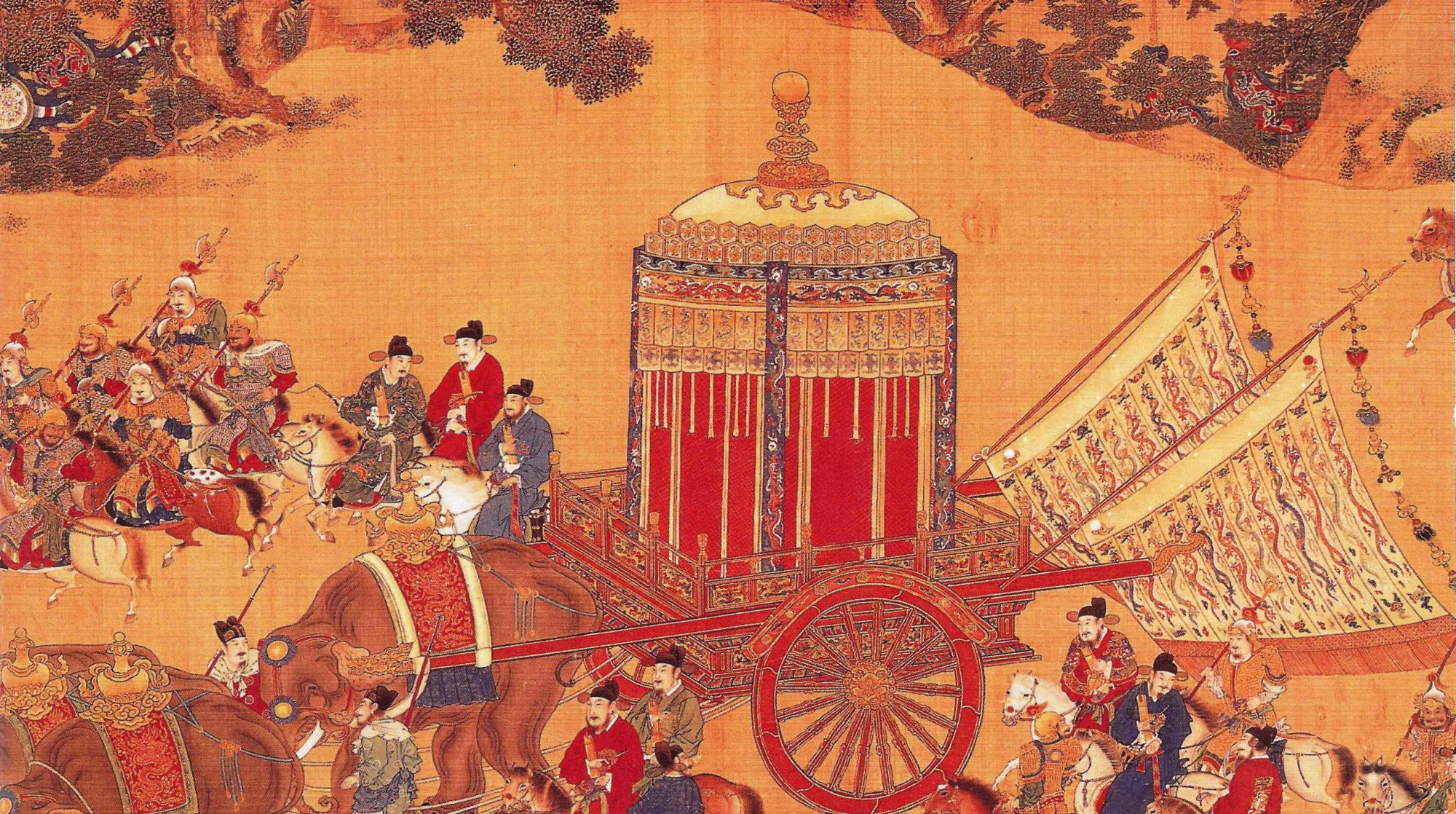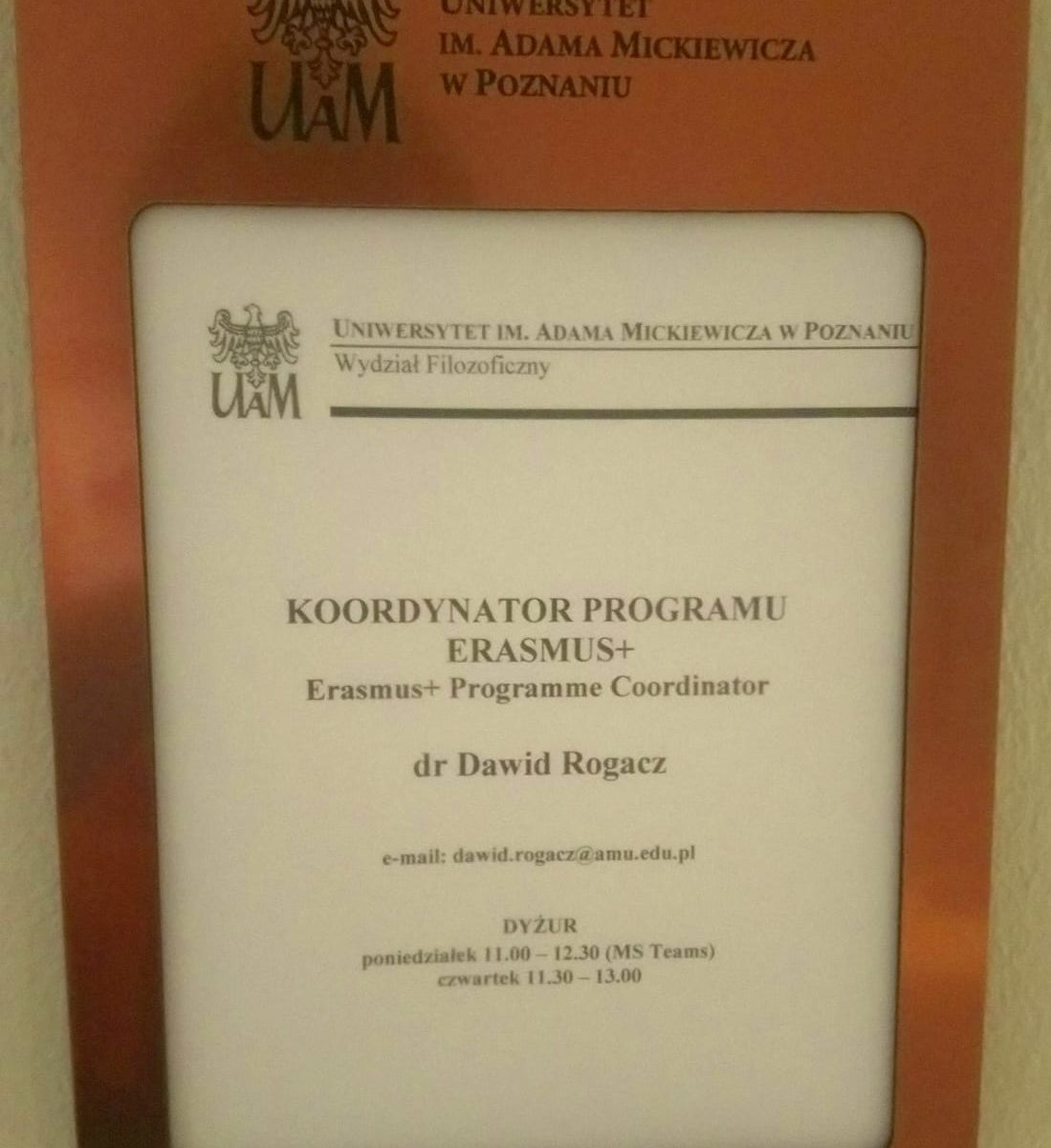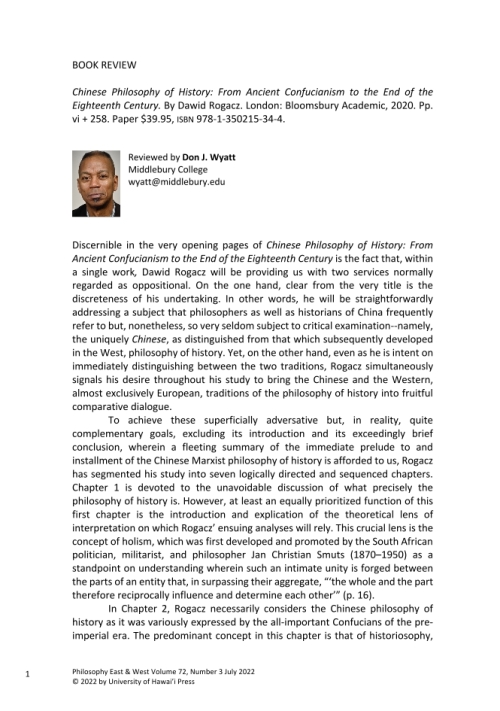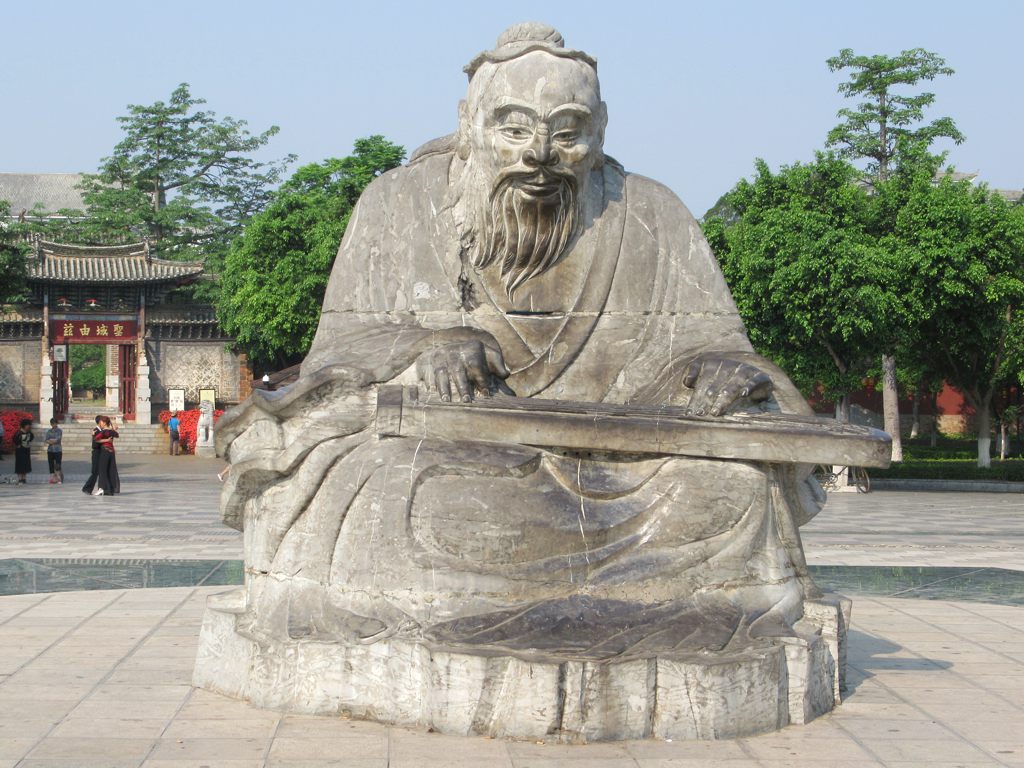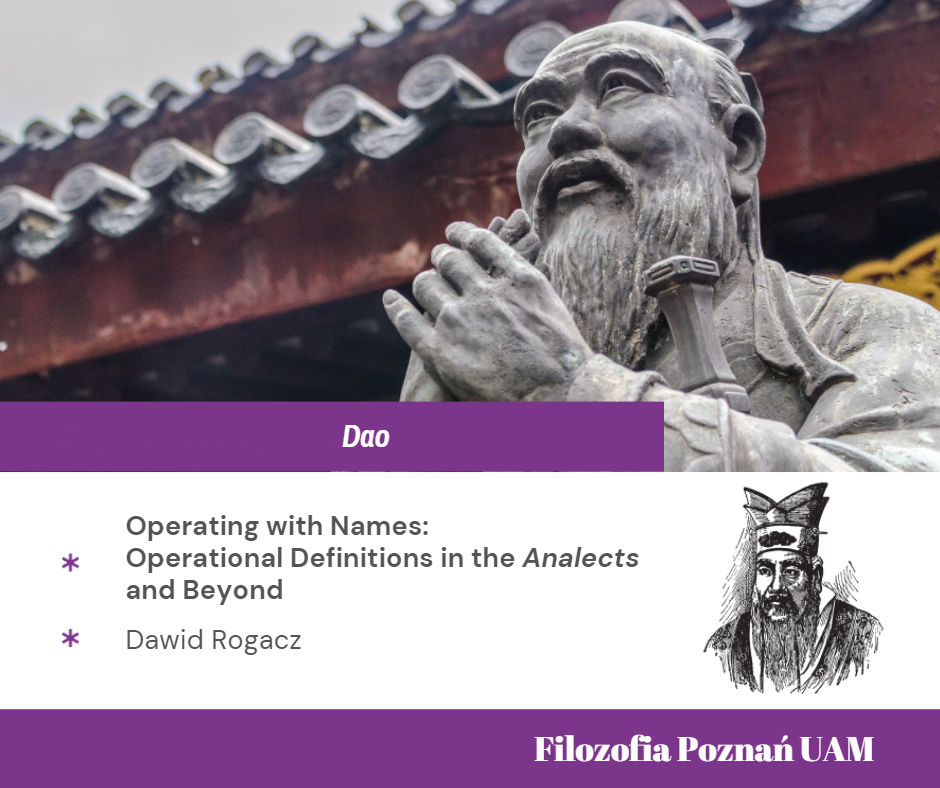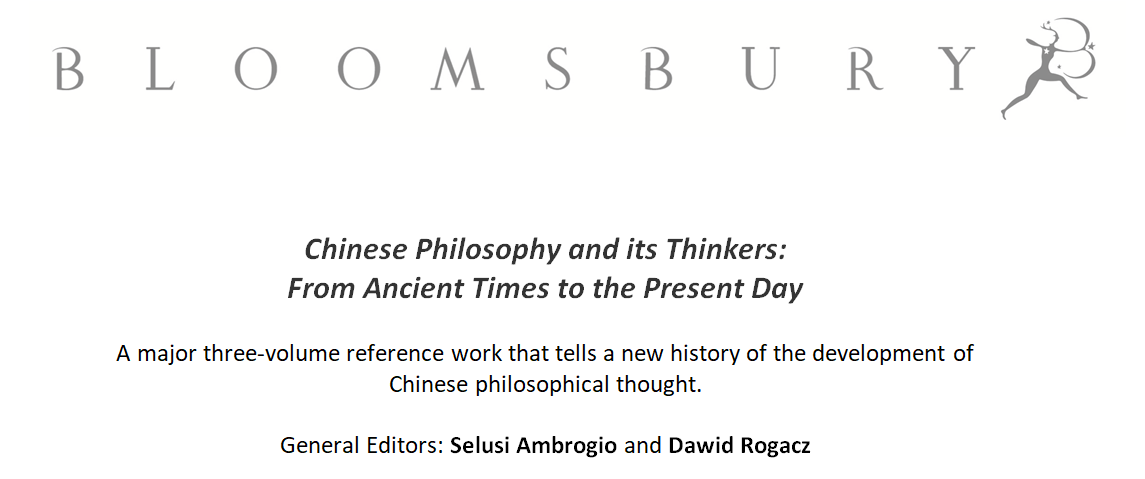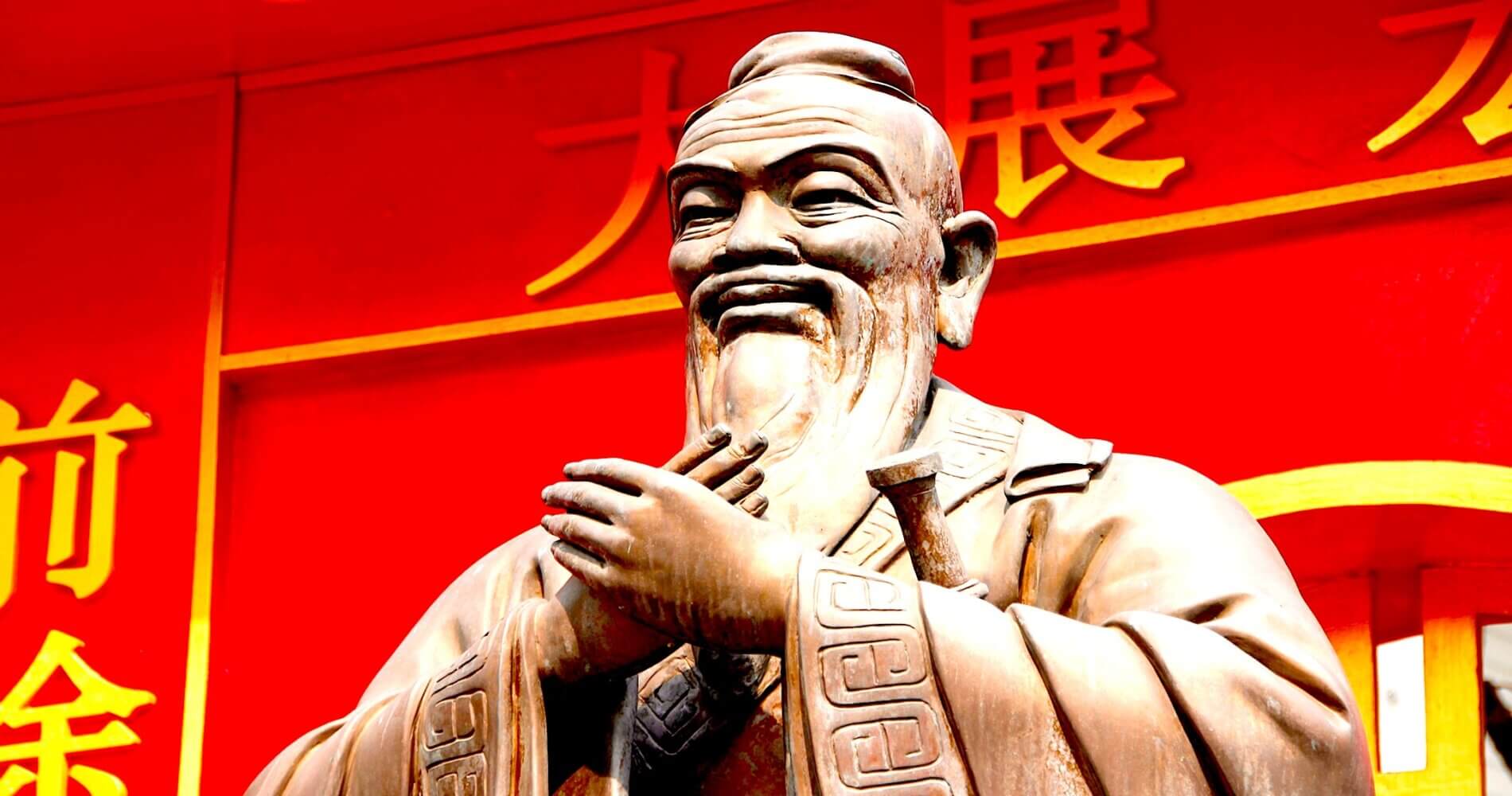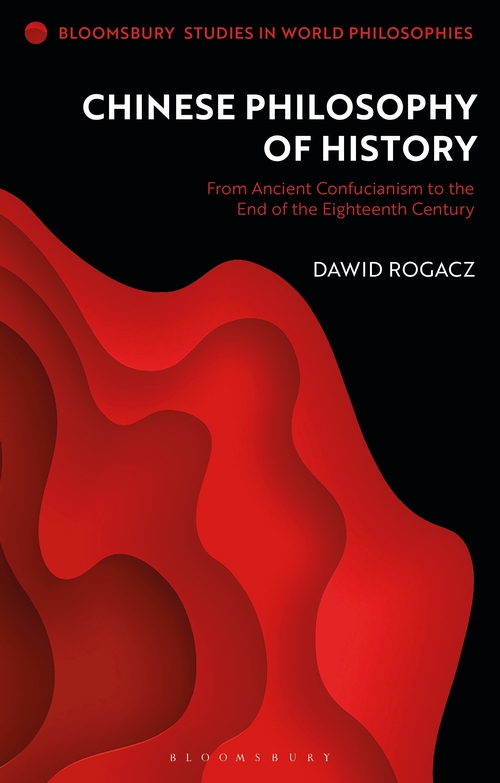Starting from October 1, 2022, Dr. Dawid Rogacz will act as Erasmus+ Programme Coordinator at Adam Mickiewicz University Department of Philosophy. He will also be in charge of international collaboration beyond the framework of the European Commission.
Review of the “Chinese Philosophy of History”
“Philosophy East and West” has published a review of Dr. Rogacz’s “Chinese Philosophy of History.” The review was written by Prof. Don J. Wyatt from Middlebury College: link.
New papers: January to April 2022
Four papers authored by Dr. Rogacz were published between January and April 2022:
* “The Idea of Supreme Peace (Taiping) in Premodern Chinese Philosophies of History“, Asian Studies vol. 10, no. 1 (2022), 401-424;
* “Inaudible Sounds and Nonhuman Harmony: On Daoist Mysticism of Music“, Journal for the Study of Religions and Ideologies vol. 61, no. 21 (2022), 115-128;
* “Pushed Forward by Lifted Hearts: On Stanislaus Lo Kuang’s Sino-Christian Philosophy of History“, Religions vol. 13, no. 3 (2022);
* “Sincerity (cheng) as a civic and political virtue in classical Confucian philosophy“, Philosophy Compass vol. 17, no. 6 (2022).
The first three are available in Open Access.
New Paper: Definitions in Confucius
Classical Chinese philosophy, and the philosophy of Confucius in particular, has often been criticized for lacking definitions of its core concepts. Dr. Rogacz’s paper argues that unlike Socrates, Confucius systematically used non-classical definitions—to be precise, operational ones. As it shows, this mode of defining things had major implications for the content of Confucian thought. The article is available in Open Access: link.
Visiting Scholar in Leiden
Throughout September 2021, Dr. Rogacz will be a Visiting Scholar at Leiden University Institute for Philosophy. He will give four talks within the series “New Perspectives on Chinese Philosophy”. Their program is available here. For Dr. Rogacz’s profile on the website of Leiden University and his contact details see the link.
START Scholarship
Dr. Rogacz has been awarded with START Scholarship, given by Foundation for Polish Science to 100 best young scientists and scholars in Poland by the age of 30. Moreover, Dr. Rogacz has been distinguished amongst the awardees as one of the five best candidates and the only representative of humanities and the social sciences in TOP5. For more information (in Polish) see the link. For an interview about the scholarship in the Second Station of Polish Radio see the channel.
Chinese Philosophy and its Thinkers: an encyclopedia
Dr. Dawid Rogacz and Dr. Selusi Ambrogio (University of Macerata, Italy) have been appointed by Bloomsbury as General Editors of the new, three-volume encyclopedia of Chinese philosophy: “Chinese Philosophy and its Thinkers: From Ancient Times to the Present Day.” The publication (in paper and online) is planned for 2024.
The project entails close cooperation with more than sixty scholars from all over the world under the guidance of the Advisory Board consisting of the leading experts in Chinese thought: Bart Dessein, David Chai, Yong Huang, Leigh K. Jenco, Peng Guoxiang, PJana S. Rošker, Wen Haiming, and Bryan W. Van Norden.
Each volume features 20 chapters (often divided into relatively independent sections) of around 10,000 words. Expanding and challenging existing views of Chinese philosophy, this wide-ranging collection shall:
- address misrepresentations and misrecognitions of Chinese thought by approaching Chinese philosophy in terms of thinkers rather than schools of thought
- feature chapters on an unprecedented range of thinkers, including independent philosophers often neglected from traditional surveys
- cover the linguistic and rhetorical form of Chinese philosophical thought
- discuss social, political, and economic contexts and interconnections between Chinese and other East Asian traditions, and Chinese and Western traditions
- provide up-to-date coverage of early modern encounters and those from the twentieth and twenty-first century
Popular science article on the Chinese philosophy of history
Portal “Wszystko Co Najważniejsze” has published a popular science article on the Chinese philosophy of history authored by Dr. Rogacz (in Polish): link.
A Conversation on Chinese Philosophy of History
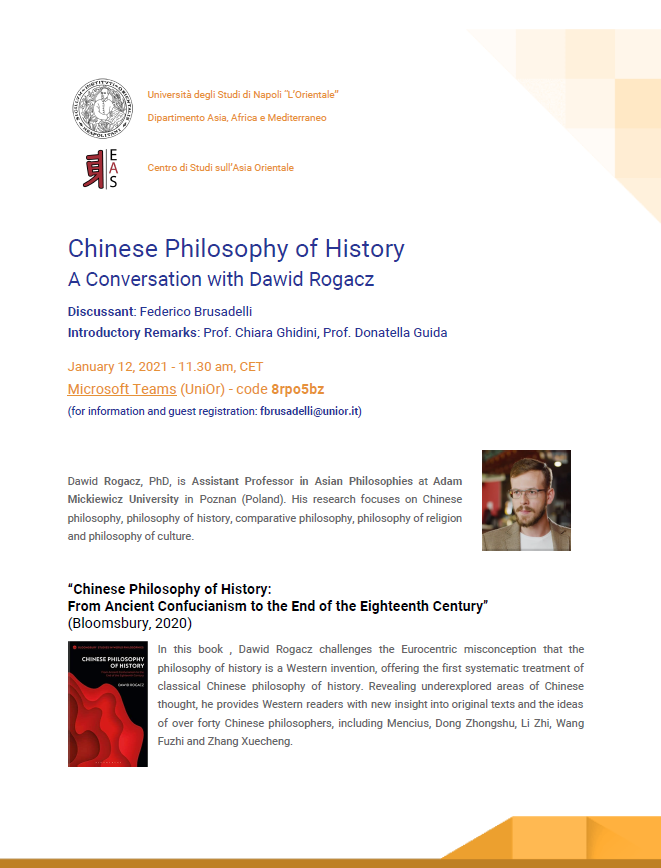
Bloomsbury book
Chinese Philosophy of History. From Ancient Confucianism to the End of the Eighteenth Century (Bloomsbury Academic, London 2020) is out!
Challenging the Eurocentric misconception that the philosophy of history is a Western invention, the book reconstructs Chinese thought from its beginnings to the end of the eighteenth century and offers the first systematic treatment of classical Chinese philosophy of history.
From reviews:
“Chinese Philosophy of History offers an original and unparalleled description and analysis of the enduring Chinese fascination with the nature, meaning, and writing of history, displaying an impressive command of historical sources and a mastery of philosophical understandings of history as process, narrative, and expression in other forms of culture.” –Philip J. Ivanhoe, Distinguished Chair Professor, College of Confucian Studies and Eastern Philosophy, Sungkyunkwan University, South Korea
For more information about the book and how to buy it see:
https://www.bloomsbury.com/uk/chinese-philosophy-of-history-9781350150102/
